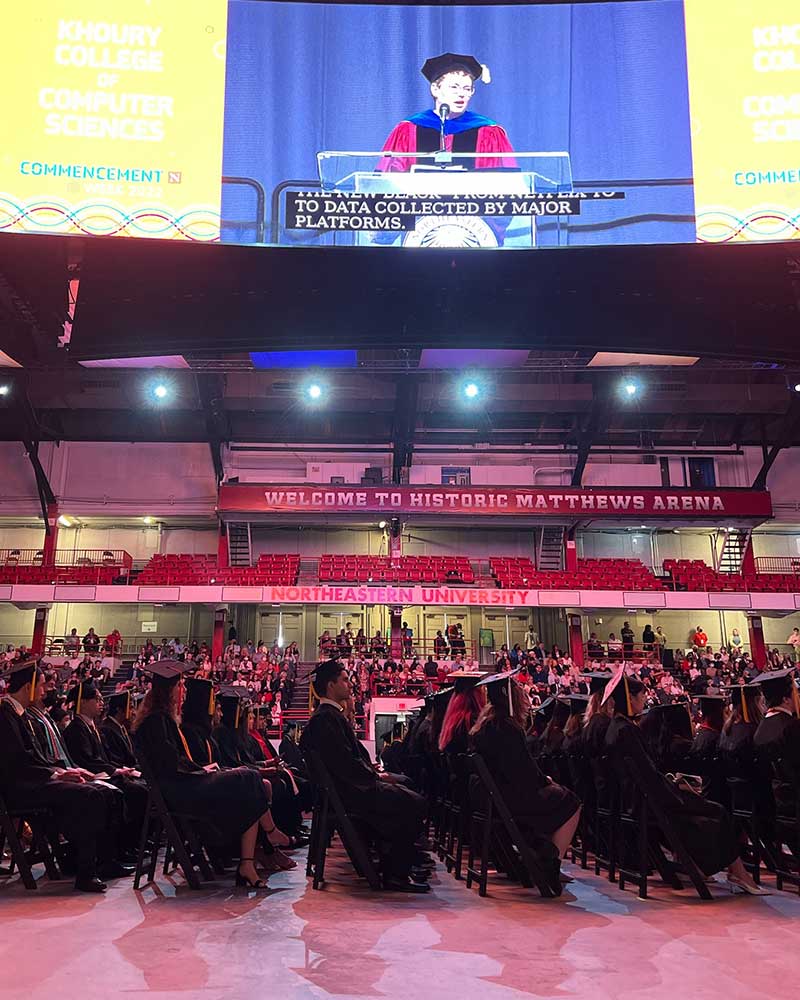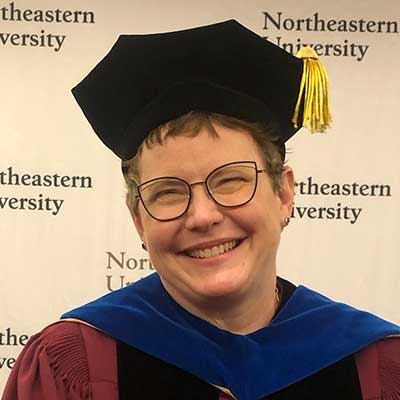Dean Mynatt proposes oath for computer scientists at Khoury College graduation
Dean Mynatt proposes oath for computer scientists at Khoury College graduation
Author: Paul Murphy
Date: 05.13.22
During her Khoury College Commencement Celebration speech on May 11, Dean Elizabeth Mynatt recognized the vital contributions computer scientists make to society—and the moral responsibility the work carries. That’s why she shared her vision of a computer science oath with the graduating class of 2022.
 Photo by Josephine Pettigrew.
Photo by Josephine Pettigrew.
“Computing enables people to communicate and connect,” Mynatt told the graduates. “It steers the operations of planes, trains, and automobiles, as well as the news that you read and the items that you purchase. It enables medical diagnosis and treatment and so much more. And the decisions you make, whether you’re a startup entrepreneur or building enterprise systems for the largest international company, will impact the daily life experiences of humankind.”
Given the magnitude of this responsibility, Mynatt proposed a seven-point oath to guide graduates’ future work. She first conceived of the idea while addressing the graduating computer science class at North Carolina State University in 2017, then expounded on it in scholarly publications. It’s a recognition that unlike many other fields—medicine, finance, and business among them—computer science lacks a professional oath that graduates take upon entering the field.
Mynatt sees Khoury College taking the lead in further developing the oath, with the hope that one day computer science graduates everywhere will commit to its principles.
“Now more than ever, this oath is essential to guide the work we do on behalf of the larger society we serve,” Mynatt said.
The oath Mynatt shared:
Today, I join the ranks of computer scientists worldwide.
I will remember that I remain a member of society, with special obligations to all my fellow human beings.
I will design and build computing systems that enhance the quality of daily life for individuals and for society.
 Photo by Kanon Ciarrocchi.
Photo by Kanon Ciarrocchi.
I will protect the dignity of users and others affected by computing systems, respecting the diversity of all cultures, and safeguarding against threats to health and safety.
I will respect the privacy and rights of all people and recognize the special role I have in judiciously collecting, storing and using their information, and creating systems that aim to shape their behavior.
I will work for fair wages; honorably guarding my reputation and my colleagues in our work practices, while respecting the intellectual contributions of others.
I will improve the public understanding of computing and its consequences.
May I always act so as to preserve the finest traditions of my field, and may I long experience the joy of inventing the future through my endeavors.
Subscribe to the Khoury College newsletter
The Khoury Network: Be in the know
Subscribe now to our monthly newsletter for the latest stories and achievements of our students and faculty